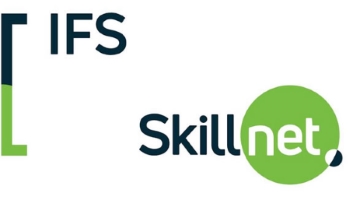Start Dates: TBC
Duration:
Certificate on Completion at the end
Location: Online
Full Fee: POA
Network Members Fee: POA
Programme overview
The Individual Accountability Framework (IAF), which was enacted earlier this year, is one of the most significant regulatory developments in Ireland in recent times. Its overarching objective is to improve governance, performance and accountability in relation to regulated financial service providers and their management/employees. By establishing a clear framework as to who is responsible for what within these firms, the reforms will encourage greater individual accountability and enhance the Central Bank’s ability to hold individuals to account
when their conduct or performance falls below regulatory expectations.
This tutorial describes the IAF in detail, with particular focus on the key areas covered by the new rules – the Senior
Executive Accountability Regime (SEAR), Conduct Standards, enhancements to the existing Fitness & Probity
(F&P) Regime and modifications to the Administrative Sanctions Procedure (ASP).
IFS Skillnet is delighted to partner with Intuition on this eLearning module. The module is particularly relevant to those with no knowledge or experience of the IAF, though there is sufficient detail to make it useful to those with some familiarity as well.
Overview of the Individual Accountability Framework
• The Need for the Individual Accountability
Framework
• Legislative & Regulatory Measures
• Key Elements of the Individual Accountability
Framework
Senior Executive Accountability Regime (SEAR)
• What is the Regime?
• SEAR Responsibilities
– Inherent Responsibilities
– Prescribed Responsibilities
– Other Responsibilities
• Assignment of Prescribed Responsibilities
• Responsibilities of NEDs & INEDs
• Statements of Responsibilities
– Submitting Statements
– Statements of Responsibilities: Additional
Information
• Management Responsibilities Map
– What Should the Map Include?
• Duty of Responsibility
Conduct Standards
• Types of Conduct Standard
• Business Standards
Common Conduct Standards
– Act with Honesty & Integrity
– Act with Due Skill, Care & Diligence
– Cooperate in Good Faith & Without Delay with
Regulators
– Act in the Best Interests of Customers
– Comply with Market Conduct Standards &
Trading Venue Rules
• Additional Conduct Standards
– Effective Control
– Compliance with Legislation
– Delegation & Oversight
– Disclosure
• Reasonable Steps
– Guidance on Reasonable Steps
• Reporting Obligations
F&P Regime
• Changes to the F&P Regime
• Certification
• Certification Process
• When to Certify
• F&P Records
Administrative Sanctions Procedure (ASP)
• Strengthening the ASP
• Sanctions on Individuals
• High Court Oversight


